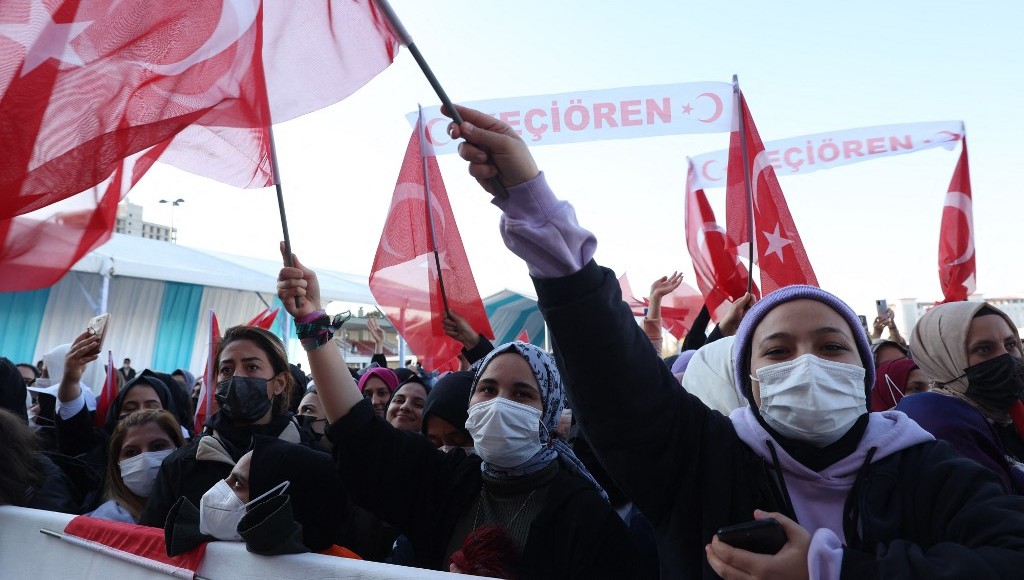Authoritarian trends observed in Turkey in the last decade have been consolidated, while the rule of law has further deteriorated in the country, according to a recent publication by the German Bertelsmann Stiftung foundation.
The Bertelsmann Stiftung’s Transformation Index (BTI) reviewed the period between 2019 and 2021 and said that profound changes in Turkish domestic and foreign policymaking were observed.
According to the BTI the authoritarian trends from the previous review periods have been consolidated in the current one.
“After the lifting of the post-coup state of emergency in July 2018, several legal provisions that restricted fundamental rights and granted extraordinary powers to the executive were integrated into law. The rule of law has further deteriorated. The implementation of the amended constitution and the propagation of a presidential system have largely undermined fundamental aspects of a democratic system,” the publication said.
The BTI said that nationalism is on the rise in Turkey, while underlining that nationalist discourse is embraced not only by the ruling People’s Alliance, which comprises the Justice and Development Party (AKP) and its coalition partner, the Nationalist Movement Party (MHP), but also by opposition parties.
The foundation also said that Turkish President Recep Tayyip Erdoğan’s decision to convert Istanbul’s Hagia Sophia into a mosque and the increasing influence of the Diyanet (Directorate of Religious Affairs) in Turkish politics attest to efforts toward the Islamization of the country.
The BTI has analyzed and evaluated the quality of democracy, market economy and governance in the currently 137 developing and transition countries every two years since 2004.
According to the BTI, democracy is losing ground.
“For the first time since 2004, the Bertelsmann Stiftung’s Transformation Index (BTI) counts more autocratically governed states than democracies. Among the 137 countries surveyed, only 67 are still democracies, while the number of autocracies has risen to 70,” the BTI said.
According to the BTI, Turkey, which is classified as an autocracy, can be regarded as “prototypical of this decline.”
“At the beginning of the last decade, the country was still being lauded as a positive example of the compatibility of Islamism and democracy, and it had distinguished itself with continuously rising rule-of-law standards, particularly with regard to the separation of powers,” the report said.
“However, beginning in 2013, the AKP-led government under Recep Tayyip Erdoğan reacted sensitively and with mounting repression to civil society criticism of Erdoğan’s increasingly patriarchal leadership style and the country’s creeping Islamization. The failed coup attempt of 2016 was then used to legitimize the transformation into a presidential republic, a shift that undermined the separation of powers and severely curtailed a significant body of political participation rights. Over the last two years, following the lifting of the state of emergency, a number of the decrees restricting fundamental rights and granting extraordinary powers to the executive have been incorporated into regular law,” the report said.
Turkey survived a coup attempt in 2016, which the government accuses the Gülen movement, a faith-based group that focuses on science education and interfaith and intercultural dialogue that is inspired by Turkish cleric Fethullah Gülen, of orchestrating. The abortive putsch was followed by a two-year-long state of emergency declared by the government.
The Gülen movement strongly denies any involvement.
The crackdown on alleged coup-plotters, activists, human rights defenders and political opponents has helped Erdoğan further cement the control he has amassed over Turkey, while also complicating his relations with traditional Western allies and putting a dampener on the foreign investment climate because of concerns about the rule of law.
“President Erdoğan has exploited a populist nationalism to polarize the country and inflamed sentiment against the Kurdish minority, in particular, but also against secular reform forces. With a decline of 2.85 points, Turkey’s overall political transformation score has fallen further than that of any other country surveyed in the BTI over the last 10 years,” the BTI said.
Turkey scored 4.80 in terms of political transformation and ranked 74th among the 137 countries with a qualification of moderate autocracy.
With respect to economic transformation, Turkey fared slightly better, with a score of 6.11, and was ranked 40th. Yet that transformation remained limited, the BTI found.
In the governance index, which includes gradients such as rule of law and the independence of the judiciary, Turkey demonstrated a weak performance, with a score of 3.98, putting it in 97th place among the 137 countries. With these figures, Turkey scored an average 5.45 on a scale of 1 to 10 and was ranked 63rd among the surveyed countries.
